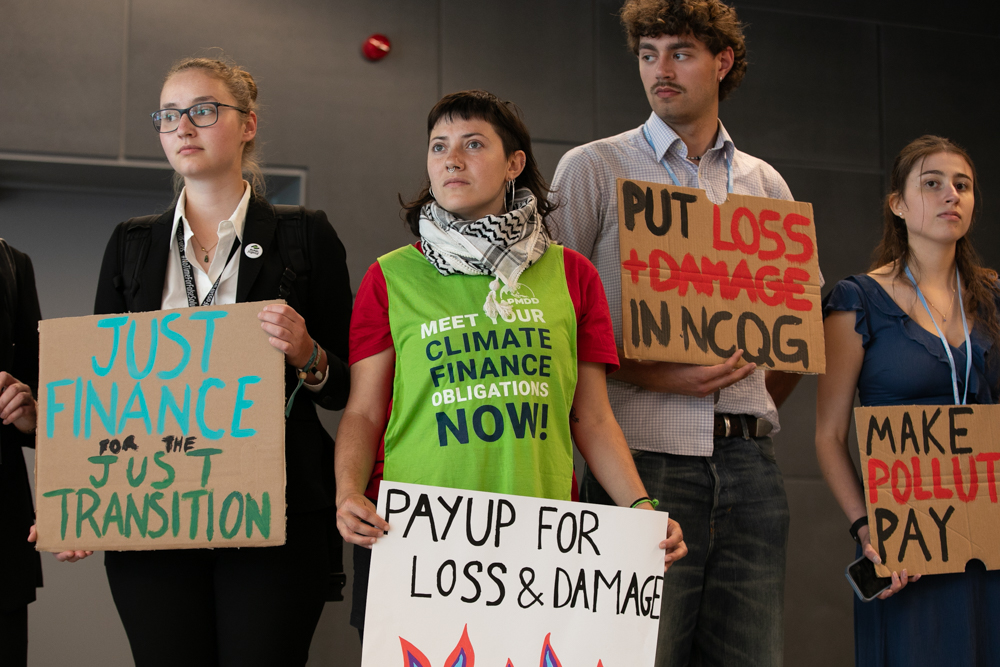Money talks
With the agenda adopted last Monday, negotiators on the post-2025 finance goal – known as the New Collective Quantified Goal (NCQG) – started exchanging opinions on a 63-page draft text.
At this early stage – with the NCQG due to be agreed at COP29 in Baku in November – many countries are keeping suggestions on specific figures close to their chest, particularly as the UN is due to release a needs determination report in October which will offer guidance.
But the Arab Group has put forward a figure of $1.1 trillion a year from 2025 to 2029. Of this, $441 billion should be public grants and the rest should be money mobilised from other sources, including loans offered at rates cheaper than the market.
The group, backed on this by the G77+China, has even suggested how developed countries could raise that sum – through a 5% sales tax on developed countries’ fashion, tech and arms companies – plus a financial transaction tax.
Military emissions account for 5% of the global total, said Saudi Arabia’s negotiator. This surprised many observers, as Saudi Arabia is the world’s fourth-biggest per capita spender on the military and gets much of its equipment from Western arms companies.
But developed countries insist they can’t stump up all the money and are asking for help. The EU’s negotiator said the NCQG should be a “global effort” while Canada’s said it should come from a “broad set of contributors”. In other words, wealthier and more polluting developing nations like the Gulf nations should also play their part.
But developing countries remain, at least publicly, united against these attempts to differentiate between them. They say developed countries have the money – it’s just a question of whether they have the “political will to prioritise climate change”.
The other emerging divide is whether to include a sub-target for loss and damage in the NCQG. Developing countries want this but developed countries are opposed.
Asked why, the EU’s negotiator told Climate Home the Paris Agreement “does not provide any basis for liability or compensation”, and that climate finance under the NCQG should consist only of two categories: mitigation and adaptation.
The talks’ co-chairs – Australian Fiona Gilbert and South African Zaheer Fakir have slimmed down the sprawling 63-page document they presented to Bonn into a mere 45-page one. Negotiators will continue hashing it out this week. Talks continue (and are livestreamed) at 3-5 pm today and tomorrow.



